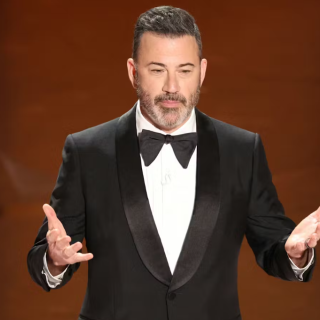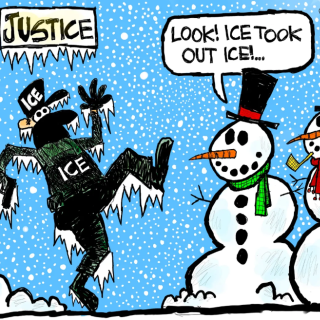Especially in the United States but across the world, we witness a stunning recurrence of an at least 60 year old tradition. University presidents, most loudly former university presidents, publicly blame faculty—most directly tenured professors-—or the many problems of higher education today.
There are many motivations. Prominent today are selling books, deflecting all responsibility for their own and other institutions failings away from themselves and on to anyone else; and running for elective office.
In the 1960s and 1970s, faculty and also students were blamed for universities’ awkward and contradictory stances on civil rights and then anti-war movements. Later, it was affirmative action broadly defined from equal opportunity to Diversity-Equity-Inclusion, among many manipulated themes, intended to distract attention from administrative failures of leadership and refusal to accept responsibility. These illegitimate, unprofessional manipulations typically contradict administrators’ wholesale statements about the roles of colleges and universities in the social, moral, and civic orders.
Consider two new examples that appear prominently across printed and online pages: former private liberal arts Macalester College (2300 students, $70,000 tuition) president Brian Rosenberg and former large public technologically oriented Purdue University president Mitch Daniels.
Paralleling an upside down Shakespearian tragic comedy, the hubris, distraction, anti-factual dishonesty, and self-promotion of these and other odd bedfellows may be worthy of YouTube. Yet it fills the pages of the Washington Post, Chronicle of Higher Education, Inside Higher Education, and a second-level academic publisher’s list.
They are alternatively praised and damned by bloggers. (see Steven Mintz in Inside Higher Education) In point of fact, Daniels weighs running for Senator; Rosenberg promotes a new ahistorical and misinformed book (Rosenberg, “Higher Education as Its Own Worst Enemy: Interview, Inside Higher Education, Sept. 29, 2023;” “Higher Ed’s Ruinous Resistance to Change,” Chronicle of Higher Education, Sept. 25, 2023; Whatever It is, I’m Against It: Resistance to Change in Higher Education (Harvard Education Press, 2023)
Without irony but with contradictions, self-declared liberal, former Dickens scholar and then small college ex-president for a lengthy term, Brian Rosenberg sings his tragically off-key song in “Higher Education is Its Own Worst Enemy,” “Higher Ed’s Ruinous Resistance to Change,” and Whatever It is, I’m Against It: Resistance to Change in Higher Education.
Educated in the 1980s, then a professor, department chair, dean, provost, and college president in succession through the 1980-2010s, Rosenberg denies the fundamental facts of U.S. recent higher educational history. He repetitively asserts but does not document consistent and powerful “resistance” and absence of “change.” He baldly denies three quarters’ century of constant but uncontrolled, monitored, or well-planned changes. Is the view from three tiny colleges so obscuring?
If anything, the history of American higher education since the end—in fact the beginning--of World War II has been leaping from one undeveloped set of proposed and sometimes attempted changes, lacking in concrete programs, funding, and measures of accountability, to the next.
But the tried yet false tactic is clear. With chapters on “Reputation,” “Incentives,” “The Disciplines,” and especially “Shared Government” and “Tenure,” Rosenberg’s self-promotional strategy is to blame the professors and distract attention from the highly paid and responsible president.
How can a career-long tenured professor and 17-year college president have no self-awareness of his own complicity and contradictions? Now “retired president in residence” at Harvard Graduate School of Education, Rosenberg picks and chooses small, unrepresentative examples to spin an unsustainable series of blame everyone except the CEO. There is no relationship between his generalizations and self-contradictory choice of words.
Rosenberg is not alone. He has louder and shriller companions.
With no facts, honesty, or self-awareness, former Indiana governor and Purdue University president Mitch Daniels joins Rosenberg in holding faculty as largely responsible for the countless alleged and real problems of higher education today and in Rosenberg’s case for decades. (Daniels, “How the tenure trap paralyzes higher education,” Washington Post, Oct. 10, 2023). The duplicity, contradictions, and misrepresentations are unacceptable. Individually and together, they do a disservice to the very real needs of American higher education.
When he was termed-out as governor, right wing politician Daniels, a Republican staffer, Eli Lily Pharmaceuticals executive, and right-wing foundation leader, had himself appointed (by trustees whom he had either appointed or reappointed) president of major technologically oriented public Purdue University. He had no qualifications, experience, or relevant knowledge.
Enthusiastically joining the long American tradition of anti-intellectualism, as Governor Daniels’ major achievement in education was his statewide ban of critical but not Marxist historian Howard Zinn’s legitimate A Peoples’ History of the U.S. The book was not used in any Indiana schools at that time. Daniels foreshadowed efforts to ban critical race theory wherever it is not taught, and books solely because of certain words in their title and/or the race and gender-identity of their author.
As president of primarily technological focused Purdue, Daniels learned nothing about Purdue or any other university. His new publicity and anti-teaching and learning attack on tenured faculty is wrong on all accounts. Blaming the victims—tenured professors are now a small minority of all new hires and decreasing percentage of all active instructors—he is wrong logically, factually, and historically to assert that they are in any way responsible for current budgetary problems. He recklessly confuses and interchanges different budget categories. I know: I was a tenured professor at three public universities for more than four decades and am writing a book about “Reconstructing the ‘uni-versity’ from the ashes of the ‘multi- and mega-versity.’”
Daniels blatantly ignores the long struggle for faculty free speech—including First Amendment rights—and job security, especially in the face throughout the 20th and now 21st century of ideologues like him. Obviously, he knows no history, whether of universities or anything else.
Either or both by ignorance or design, the former president knows nothing about tenure track hiring and promotion, or university budgets despite his decade at the helm at Purdue. He was never engaged in the educational or scholarly life of the noted institution. Tenured faculty have career security, not lifelong.
So appealing to right wing politicians in red states like Daniels’ Indiana and my own Ohio, these voices ring as loudly as they do damagingly.
We need a new discourse and set of proposals about higher education that, in the least, are based on reality, documented historical and contemporary facts, and the complex, often contradictory and conflicting interaction of past, present, and future, along with recognition of continuity and change. Quite likely ex-presidents are the last voices to consult especially when they are campaigning or selling products.
---------------------------------------------------
Harvey J. Graff is Professor Emeritus of English and History, inaugural Ohio Eminent Scholar in Literacy Studies, and Academy Professor, Ohio State University . Author of many books on social history, the history of literacy and education, and interdisciplinarity, he writes about social history and higher education. He is now writing Reconstructing the “Uni-versity” from the Ashes of the “Mega- and Multi-veristy.”



